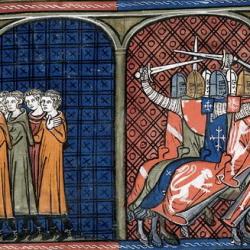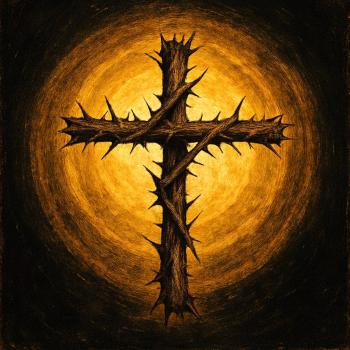First, we need to realize that the Sabbath was one of the most fundamental and distinctive of Jewish practices. It is the third of the Ten Commandments (Ex. 20:8-11; Dt. 5:12-15; Lev. 23:3), and violation of the Sabbath was punishable by death: "You shall keep the Sabbath, because it is holy for you. Everyone who profanes it shall be put to death" (Ex. 31:14-16, 35:2). For the Jews this was a matter of holiness, not work. That is, by working you profaned the holiness of God's Sabbath, and thus profaned the holiness of God.
So was healing considered work? This was one of the knotty questions of the Law that different factions of Jews were debating at the time of Jesus. In the other Gospels Jesus' response to accusations of profaning the Sabbath by healing is to ask: "Is it lawful to do good on the Sabbath? To save life or to kill?" (Mk. 3:4; Mt. 12:12; Lk. 6:9) The basic proto-Rabbinic Jewish response was that it was lawful to save life, but not to perform other general remedial medical acts on the Sabbath (Mishnah, Shabbat, 22.6, Yoma 8.6). In contrast, Jesus' interpretation of the Law seems to be that healing on the Sabbath is permitted.
But this is not the response Jesus gives in John, for Jesus isn't acting as an ordinary physician, but is healing through the miraculous power of God. Instead, Jesus defends himself by saying: "My Father is working until now, and I am working" (5:17). What does that mean?
Genesis 2:2 states explicitly "God finished his work that he had done, and he rested on the seventh day" of creation (cf. Ex. 20:11; Dt. 5:15). This created a theological question among first century Jews about whether God works—that is, engages in divine acts—on the Sabbath. In other words, does God obey his own Law? There was a broad agreement among Jews was that God does engage in divine actions on the Sabbath, notably since people were born and died on the Sabbath, which were seen as divine acts. Furthermore, Jewish priests likewise carried out their work—the temple liturgy—on the Sabbath, in fact, doing extra work since there were extra sacrifices required on that day (Num. 28:9-10). Jesus' argument is that, since the Father undertakes divine works on the Sabbath, the Son can likewise perform divine acts on the Sabbath, since he only does what his Father does (5:17-19). Since the divine acts of God and the holy liturgy of the Temple are permitted on the Sabbath, Jesus' divine acts are likewise permissible.
Unfortunately, this didn't placate the critics, because it rested on the assumption that Jesus was the Son, and his acts were therefore divine work, an assumption the critics did not accept. Thus, in addition to violation of the Sabbath, Jesus had now also blasphemed God in the eyes of his critics by "making himself equal with God" (Jn. 5:18). Both acts were punishable by death according to the Law (Ex. 31:14-16, 35:2; Lev. 24:16).
Thus, the boundaries of the growing conflict between Jesus and his critics had been clearly set. If Jesus is the Son his power comes from God and his Sabbath actions are according to God's will. If he is not the Son, he is a blasphemer and a Sabbath-breaker worthy of death.
A pdf of the full version of this column, with extensive references and notes, can be found at:
http://byu.academia.edu/WilliamHamblin/Papers/457549/John_5_1-18
Updates and discussion can be followed on Facebook at:
http://www.facebook.com/pages/An-Enigmatic-Mirror/180889785272535





